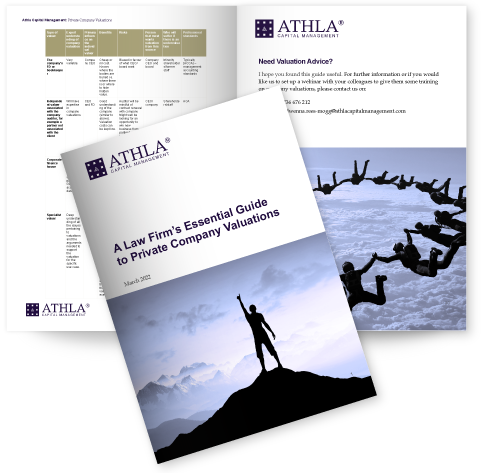Does lack of interest mean lack of value?
February 11, 2025

One of the more curious discussions we have at Athla Valuations
I am writing this email from Riyadh where I have been speaking at LEAP 2025. It is a stellar event with six halls of exhibitors and stages for expert speakers. If you get the chance I recommend you send representatives to LEAP 2026.
The levels of interest in emerging business over here in Saudi Arabia are growing and getting larger. LEAP 2025 is all about tech and innovation and rapidly growing start-ups juxtaposed with the world’s unicorns. It is an event that has literally been built in the desert and they are saying over 200,000 people will attend it over the course of four days, all of whom drive for an hour out of Riyadh, through the desert passing palms and herds of camels, to the venue in beautiful luxury cars. No bangers in the slow lane here.
When you arrive, it is an explosion of colour and noise and size with drones and robots and thousands of people. The food offer – McDonalds, Pizza Express and Krispy Kreme alongside vans selling Arabic coffee and fast food.
And then this morning I opened The Times App on my phone to catch up on what is going on in the UK, only to read a report from Beauhurst that said Venture Capital deals by volume in the UK fell by a quarter in 2024. Really early-stage investing is holding up according to Beauhurst and interest in AI digital health and life sciences is healthy but according to Henry Whorwood; “there’s a real crisis from the entrepreneurs’ perspective. We need more liquidity to keep the whole thing growing and to get creative destruction.”
It’s worth noting that the volume of funding was skewed in the period by an £882m funding round for Wayve, two rounds of funding for Monzo and a £209m raise for payments platform Zepz.
For UK company valuations, a downturn in interest from VCs and even PE raises the spectre of a lack of willing buyers, not just now but going forward. If financial investors, especially those backing smaller ticket MBOs or supporting buy and build activity are turning away from the UK, as valuers, we must take note as the presence of a theoretical willing buyer is critical to many valuation frameworks.
A more constrained cohort of “in the real world” willing buyers must drive down valuations for scenarios such as paper valuations for tax purposes.
As valuers, our current position is that we are confident that even if UK investors are exiting stage right, we should be looking out for investors entering from both stage left and stage right
International interest should fill the willing buyer gap being left by VCs in the UK. In the same Times business section today there is an article on US property investors returning to pick-up bargain basement London office real estate. There are activist investors across the UK stock market many of whom have an international background. (For those of us old enough to know what I am talking about, it would be rude not to ask where are the 21st century Messrs White and Hanson? Have they headed to Dubai perhaps or elsewhere in MENA which is why LEAP 2025 is throbbing with English accents?).
I am not yet happy to concede that a lack of UK willing buyers definitely commands an impairment to value in the round, although as always, when it comes to a valuation exercise, each case is unique.
However, the form of willing buyer may change and/or the balance of available types of willing buyer may rebalance leading to a re-examination of comparable data to apply.
Outside the niche issue of willing buyers, what does this mean for you and us? I suspect more M&A activity, and within that, more focus on earnouts and perhaps complex cap tables to give remaining management a way to capture long term value, even if control sits elsewhere. The need for understanding value today and how it will change is going to become even more important.
A brief case study
We have just worked with a client planning to make an acquisition of a technology company. Squaring the circle meant providing a Net Present Value valuation today so the headline offer could be made, but it also involved breaking that headline price into two pieces – one – the price (value) that should realistically be paid today for the business as is, and two – the quantum of the residual price once the former had been established.
The second step was to think about how that second piece of value should be paid for and when.
The point is that trade buyers or strategic buyers think about value differently to financial investors. We adapt to the specific needs of the client and the situation and we argue it through using evidence.
We are always happy to support simple and complex scenarios where getting the value right will make all the difference. Call or email us anytime
In the meantime have a great day and I hope to see you on my return. And if you fancy a coffee and catch up just let one of us know.


